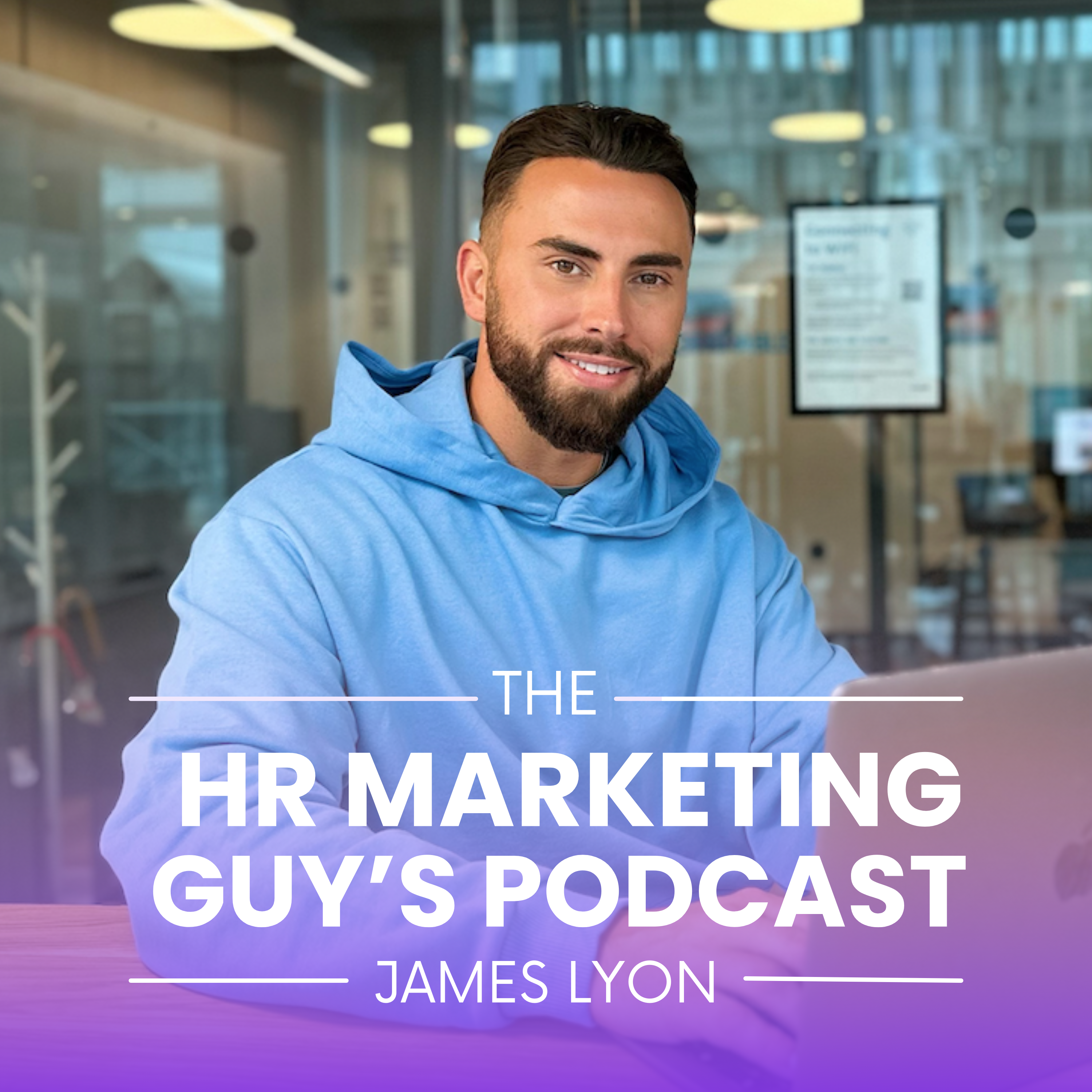Episode 31: 10 reasons why your proposals get ghosted and how to avoid proposal purgatory in the future

Hey! James here. Welcome to this week’s podcast episode.
In this week's Main Event, I'm going to talk you through the 10 reasons why your proposals are getting ghosted and how you can avoid proposal purgatory in the future.
And in today's thought of the week, I'm going to share a really cool way I've been keeping my growing team up-to-date and connected.
Even when we're in the opposite corners of the world.
So let's jump straight in.
Transcription below:
Main event:
I know how annoying it is when you've spent loads of time putting together what you think is a great proposal, only to be completely ghosted.
You've spent a few hours speaking to the client and listening to all of their problems.
You've spent a lot of time and energy creating a proposal.
You've sent it off.
And then there's radio silence. No response. No feedback.
Just the sinking feeling that you've done something wrong or wasted your time.
I'm sure that sounds familiar to you.
And many independent HR consultants I know find themselves stuck in what I call proposal purgatory.
That's where you invest time and effort into creating a proposal, only for the prospect to disappear without a trace.
So that's why, in today's main event, we're breaking down why this happens and, more importantly, how to stop it from happening again.
***
Let’s start by looking at the 10 reasons as to why your proposals are getting ghosted....
Reason 1: The client wasn’t an educated prospect.
If they don’t fully understand HR or the impact of your work, they won’t see the value in your proposal. And that’s not their fault—that’s on you.
Reason 2: You didn’t go deep enough in the discovery process.
If you don’t fully understand their business, their challenges, their goals, or their budget, your proposal is based on guesswork. And guesswork doesn’t convert.
Your proposal needs to feel like a customized solution, not a generic sales pitch. That only happens when you’ve done the deep work upfront.
If the first time they’re seeing the numbers is in your proposal, that’s a problem.
A lot of clients ghost because of sticker shock—they weren’t expecting the price, and instead of negotiating, they just disappear. That’s why it’s so important to talk about budget before you ever send a proposal. If you know they can’t afford it, you can adjust or walk away before wasting your time.
If your proposal is too broad, too vague, or doesn’t clearly connect with the client’s actual problems, they won’t see themselves in it. And if they don’t see themselves in it, they won’t move forward.
Your proposal should be specific—tailored to their business, their challenges, and their goals. If it feels copy-pasted, it’s going to be ignored.
And this one is huge.
If you’re only offering a chunk of bespoke hours, you’re making it harder for the client to say yes. Clients don’t buy time—they buy outcomes.
Instead, you need to package your services properly. Break them down using the HR Service Pyramid and stack the value, so the client can see exactly what they’re getting. If you make it clear how each level builds on the other, they’ll feel more confident about making a decision.
Clients don’t like all-or-nothing decisions. If you’re only giving them oneproposal and saying, “Take it or leave it,” they’re more likely to leave it.
Instead, always give three options—a tiered structure that lets them choose what works best for them. This simple shift increases conversions massively.
If there’s too much detail, too many options, or too much jargon, clients get overwhelmed. And when people feel overwhelmed, they delay decisions—or worse, avoid them altogether.
Your proposal should be clear and to the point. Make it easy to read, easy to understand, and easy to say yes to.
Never, ever just send a proposal as an email attachment and hope for the best. If you do, you’re leaving the client to interpret it on their own—and that’s dangerous.
Instead, always book a call to walk them through it. That way, you can explain your thinking, answer questions, and handle any objections in real time.
If your proposal doesn’t have a clear deadline, a next step, or a reason to act now, it’s too easy for them to push it down their to-do list. And once that happens? It’s out of sight, out of mind.
Every proposal should have a follow-up date and a reason to act now—whether that’s limited availability, a time-sensitive bonus, or something else that creates urgency.
Sometimes, ghosting isn’t about your proposal at all. The client might just not be ready. Internal priorities might have shifted, key decision-makers might be dragging their feet, or they simply might not be making any decisions right now.
But that doesn’t mean the deal is lost. It just means your follow-up strategyneeds to be strong. Because ghosting doesn’t always mean no—it just means not yet.
***
So now we've covered the 10 reasons as to why your proposals are getting ghosted...
…let’s talk about what you can do differently to stop this from happeningand start turning more proposals into paid work.
The key takeaway here is that your proposals shouldn’t just be documents - they should just be a record of a larger conversation that you've had together.
For many HR consultants, that means putting a bit more work into your discovery and due-dilligence before creating the proposal.
And it means spending more time with the business owner, educating them on the world of HR and guiding them through the proposal that you've created.
***
There's 3 things that I've created for you that will help.
The first is my now registered framework called the HR Service Pyramid.
This can be used to help you package up your services but also educate business owners on the different level of the HR Service Pyramid.
The second are templated admin and advisory 3 tier, subscription based packages.
These will help you position your services to business owners in the best way.
And then finally, I've created a templated promotional deck you can use to guide business owners through a discovery call to educate them, explain the different levels of service you provide and pitch your services in the right order.
All of these resources and loads more to help you avoid proposal purgatory are included within my flagship video programme "How to package up and sell HR to make more money"
To learn more about this video programme, please visit my website thehrmarketinggu.com.
And of course, I'm always here to help.
Just get in touch and let's jump on a call.
Thought of the week:
My team has grown quite a bit recently and I’ve realised how hard it is to keep everyone up to speed with what I'm doing, what other people are working on, and how everyone's hard work is contributing to the bigger picture.
Especially as we're all working remotely.
And there were lots of communication gaps forming, people were getting stressed out and little mistakes started to happen.
I was so busy doing stuff, I just assumed that everyone else know what was happening but that definitiely wasn't the case.
And it kind of hit me in the face that on top of everything else I had to do, I also had to do a much better job at communicating the business vision to my team, as well as everything else that's going on across the business in order to achieve it.
So I decided to create a HQ announcements project in our project management software.
And now, every time someone does something that takes us one step close to our goal - whether it’s operational, marketing, sales, or product development-related -I take a couple of minutes to post an update.
Nothing long, nothing fancy. Just a quick message about what’s been achieved, what’s happening next, and shout out everyone's hard work to make it happen.
And honestly, it’s made such a difference.
Everyone knows what's going on.
We're celebrating the small wins.
We're celebrating our people and their contributions.
It's giving everyone a nice positive boost everyday.
And we all feel more connected towards our shared goals.
Now, to you, this is textbook HR stuff.
You probably tell your clients to do these type of comms all of the time.
But when speaking to HR consultants, who often work with remote associates and employees, they aren't doing this type of thing for themselves.
So that's why I'd like today's thought of the week to be a loving reminder to you, that on top of being an awesome HR consultant and consultancy owner.
You also have to communicate EVERYTHING that's happening to your team.
It doesn’t have to be complicated.
Just a quick update every time the business takes one step closer it's goal.
And i think this is a fabulous way to keep yourself and your team in the loop and motivated long term.
Give it a try and let me know how you get on.

